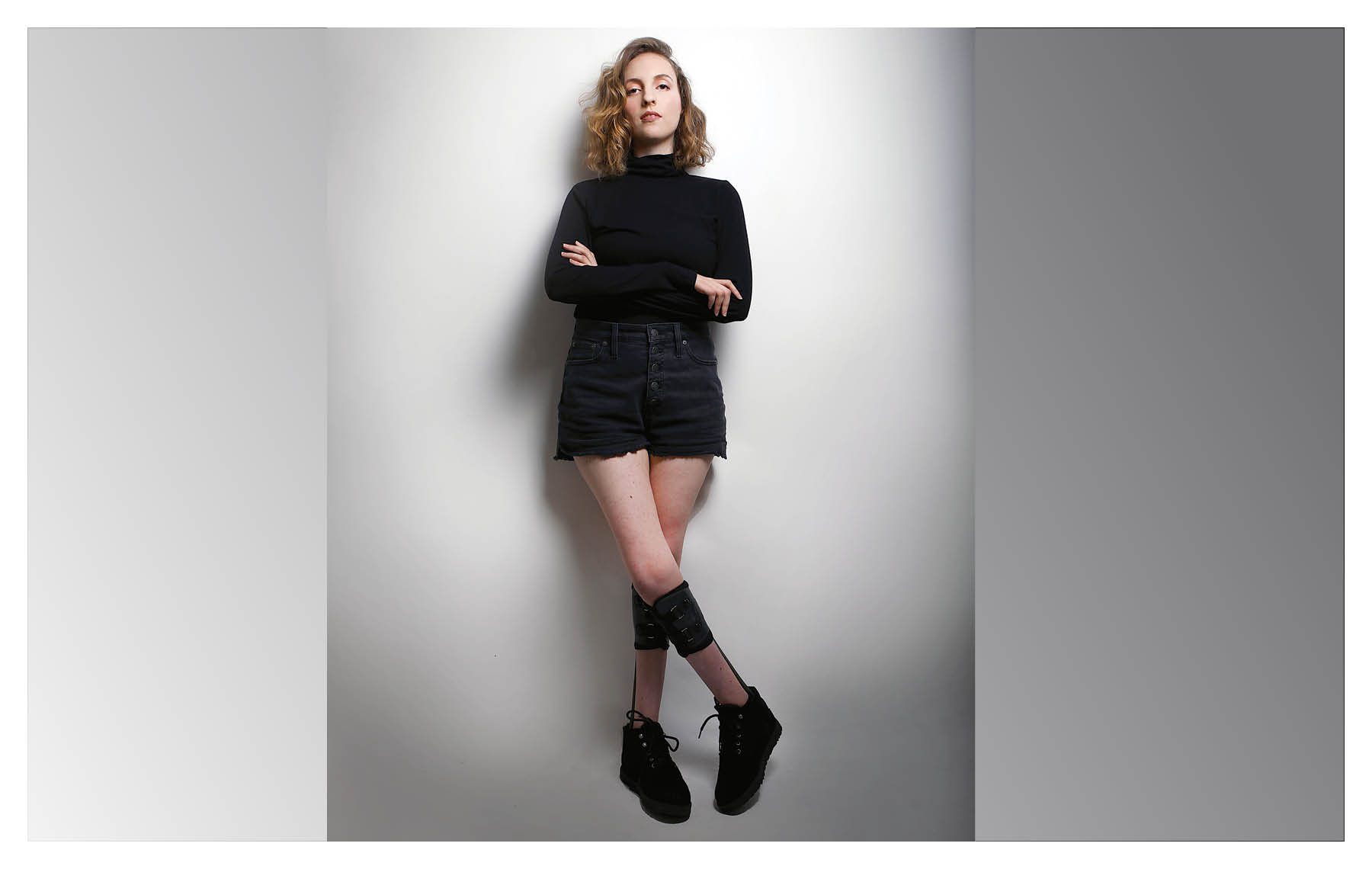
Molly Cutler has been living with a neuromuscular disease called Charcot-Marie-Tooth since she was 5 years old. But she never let it stop her from doing anything she wanted: from going on school trips with her alma maters, L.A.’s Pressman Academy and Shalhevet, to moving to the other side of the country to attend George Washington University, or to making aliyah seven years ago, at the age of 22.
The flip side to Cutler’s integration with “normal” life was that she never quite came to grips with her reality. She would try to conceal her condition either by isolating herself or trying to hide her leg braces, feet or hands — where her condition manifests itself.
Making aliyah, Cutler said, was a game changer. She was driven by an insatiable craving for adventure and an intuitive feeling that the challenges of life in Israel would allow her to grow in ways she couldn’t dream of back home. “Moving to Israel has been so instrumental in my process of self-acceptance,” she said.
She attributes Israel’s culture of openness, forthrightness and what she calls its “no-sugar mentality” in driving her forward. “In the past, when people asked about my disability it could bring me to tears,” she said. But being in Israel has taught her to assert herself “in order to survive and thrive.”
Israel, she said, “pushed me to my edge, culturally, to expose my vulnerabilities and learn how to handle whatever gets thrown at me.”
“Exposing myself to the normalization of disability has changed my life so much.”
A health coach and nutritionist, Cutler recalls her boyfriend telling her to join a group of disabled cyclists riding specially-adapted cycles in Tel Aviv’s Yarkon Park. Despite her active lifestyle, Cutler’s response was defiant: “I may have a disability, I’m not in denial of that, but I have a normal life.”
It took Cutler another year before she said, “What am I doing? The only reason I’m not doing it is because I’m afraid to associate myself with other people who have disabilities.” The realization marked a turning point in her life. Cutler joined the group and has ridden with them every Friday since. “Exposing myself to the normalization of disability has changed my life so much,” she said.
Now Cutler is on a mission to normalize disabilities for the rest of society. She plans to do so by becoming one of Israel’s first disabled models. She has already begun collaborating with two brands in Israel and the U.S.
“People are very visual creatures. When they see a picture in front of them, that shocks them initially, but then the next time it becomes more normal,” she explained. “It’s so crucial to the advancement of society. Israel has given me so much in learning how to be more confident. I see this as giving back to the country.”
Cutler said she regrets she was never exposed to people in the media who looked like her. “Just seeing that can make it so much easier to be more accepting,” she said. “For people to see we’re here and we contribute to society.”
It’s especially important for young people with disabilities to be exposed to people they can relate to, Cutler said, so that they can say, “Oh, look at her, she’s like me but she’s living her dream. I can do that too.”
“That’s a big motivator of why I’m becoming a model,” she said, “and why I’m so fueled by this mission.”























 More news and opinions than at a Shabbat dinner, right in your inbox.
More news and opinions than at a Shabbat dinner, right in your inbox.